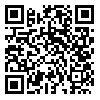Volume 22, Issue 88 (12-2023)
QJCR 2023, 22(88): 36-59 |
Back to browse issues page
Download citation:
BibTeX | RIS | EndNote | Medlars | ProCite | Reference Manager | RefWorks
Send citation to:



BibTeX | RIS | EndNote | Medlars | ProCite | Reference Manager | RefWorks
Send citation to:
Elahi F, Barabadi H A, Heydarnia A, Abbassi H. The Effectiveness of Emotionally Focused Couple Therapy Training (Hold Me Tight) on Couples' Emotional Abuse. QJCR 2023; 22 (88) : 2
URL: http://irancounseling.ir/journal/article-1-1803-en.html
URL: http://irancounseling.ir/journal/article-1-1803-en.html
(Coressponding Author) PhD Counseling, Assisstant Professor, Department of Educational Sciences and Counseling, Faculty of Humanities, University of Bojnord, Bojnord, Iran. habarabadi@gmail.com
Abstract: (3039 Views)
Aim: The aim of this study was to determine the effectiveness of Emotional Couple Therapy Training (Hold Me Tight) on couples' emotional abuse. Methods: The current study was an experimental ABA single-subject design investigation. The statistical population consisted of all couples who had attended counseling centers in city of Bojnord (Iran) during 2021. From this population, three couples who had met the inclusion criteria were purposefully selected. The Emotional Abuse Scale (EAS) was used to collect data in three stages (baseline, intervention, and follow-up). The intervention consisted of the emotional couple therapy training (hold me tight) that was administered in eight 120-minute sessions for each of the 3 pair of couples. Data analysis primarily included visual analyses, such as level, trend, and variability at three stages of baseline, intervention, and follow-up, both as within-condition, and between-condition layers. Findings: Results showed that the emotional couple therapy training (Hold Me Tight) is effective in reducing emotional abuse. The effectiveness of the results lasted for two months after the intervention. Conclusion: Given the effectiveness of emotional couple therapy, therapists are recommended to draw on this protocol to help couples struggling with emotional problems such as abuse and violence.
Article number: 2
Type of Study: Research |
Subject:
Family Counseling
Received: 2022/10/18 | Accepted: 2023/12/25 | Published: 2024/06/2
Received: 2022/10/18 | Accepted: 2023/12/25 | Published: 2024/06/2
Send email to the article author
| Rights and permissions | |
 |
This work is licensed under a Creative Commons Attribution-NonCommercial 4.0 International License. |





